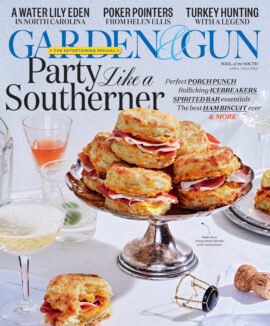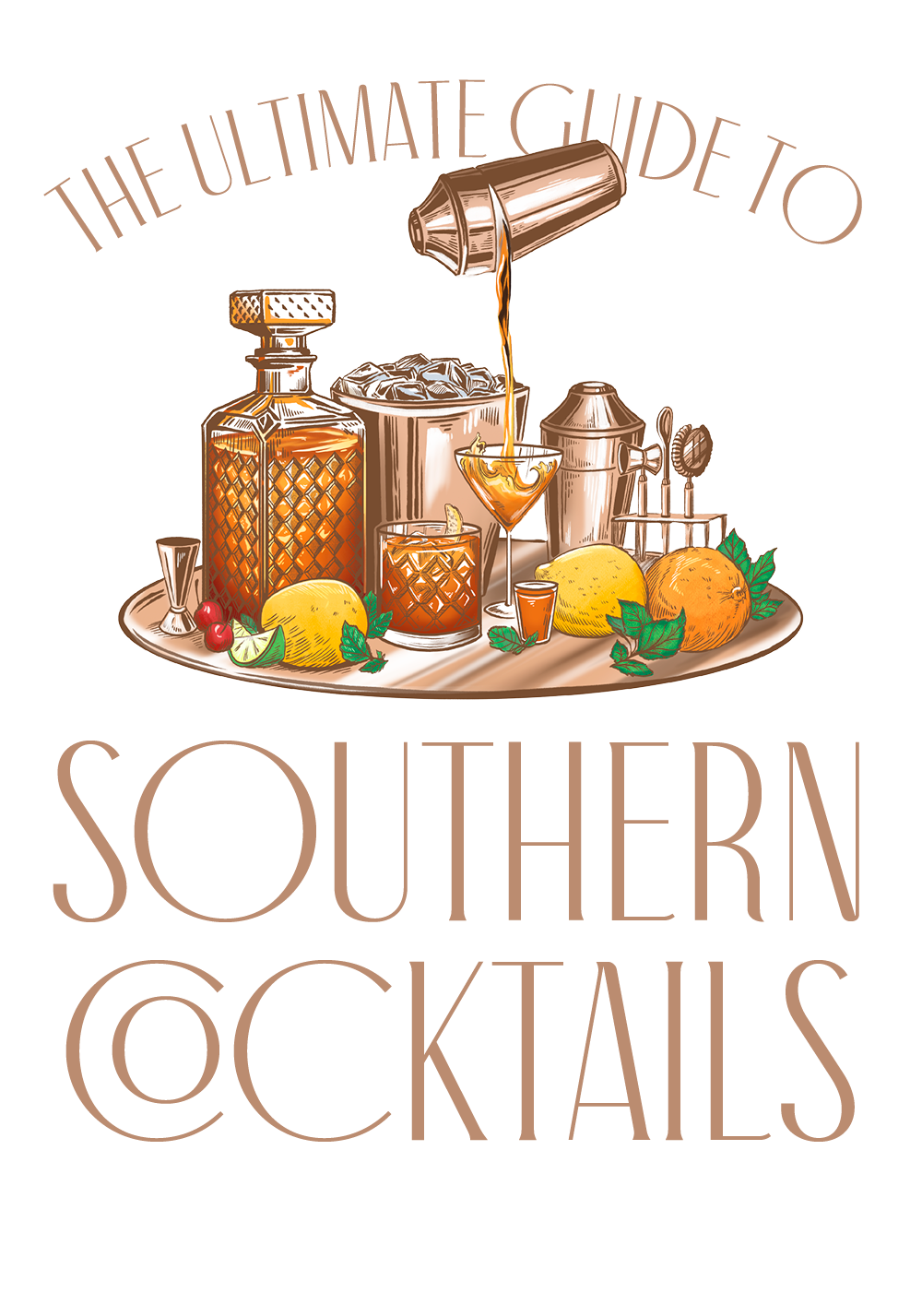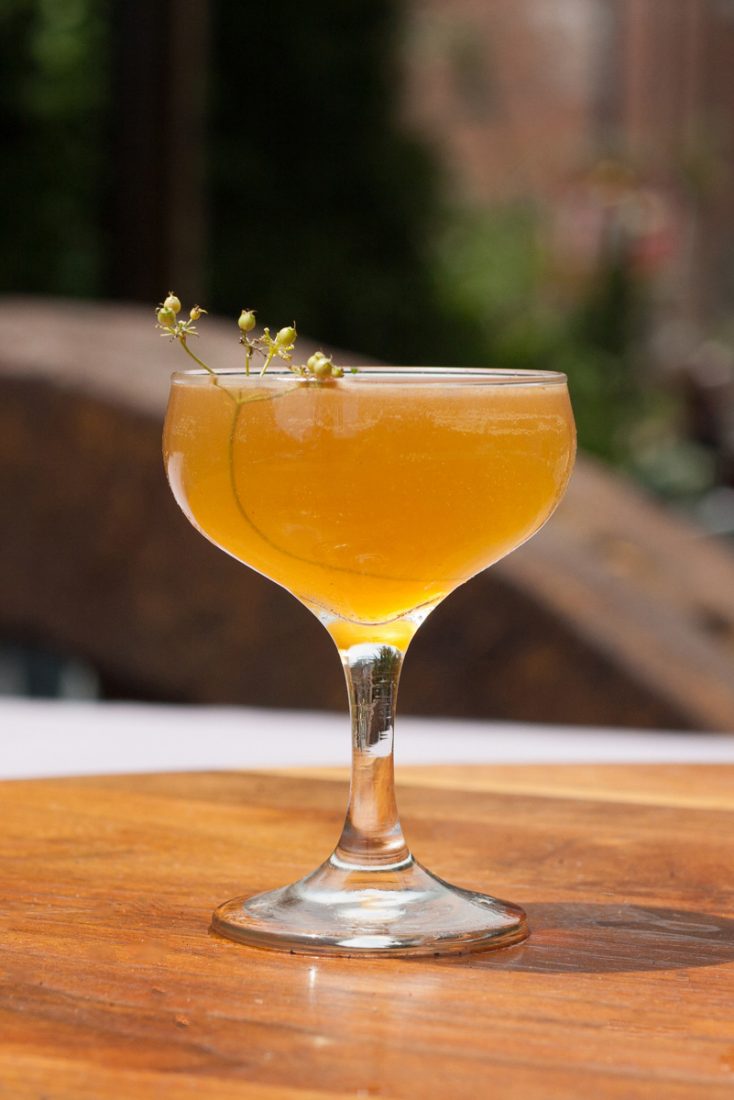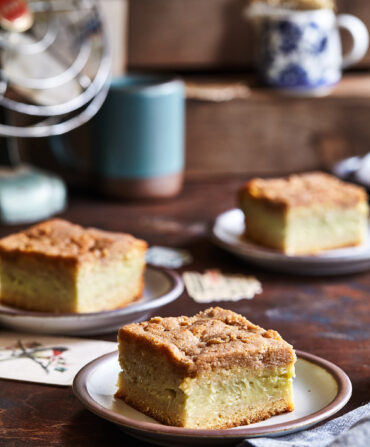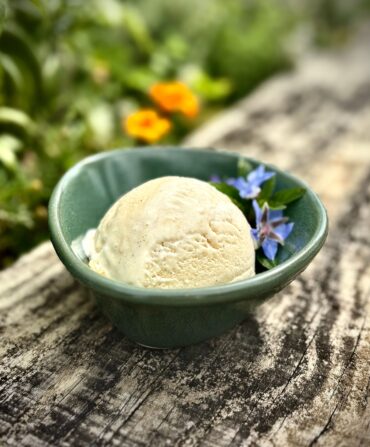At the beginning of the summer, the bartenders at Woodberry Kitchen in Baltimore began to run out of verjus, the tart juice of unripe grapes. At nearly any other bar in the country, a shortage of an ingredient like verjus might mean a gentle shift in the menu. At Woodberry, it meant a complete renovation of the cocktail program.
There may not be any bar in the country quite like the one at Woodberry Kitchen, where the bartenders practice a radical locavorism that should not be unfamiliar to any student of the farm-to-table movement, but has yet to surface on cocktail menus even at many of the more devoted joints. Banished: lemons, limes, tropical fruits, foreign liqueurs. Instead, the bar menu is stocked with regional spirits, meads, ciders, and infusions of herbs and produce. The verjus, an easy substitute for citrus, came from a local vineyard.
“For a while after we ran out of verjus, the drinks just weren’t as good,” says director of operations Corey Polyoka. “They were flat. I couldn’t pick up the phone and order a case of citrus, so we started playing around with different acidifiers—things like sour beer and vinegar.” One solution: “rhubarb water,” a tea devised by in-house preservationist Micah Martin that is fruity, floral, and nearly biting enough to pass for lemon juice. Another, still in the works: Eastern European-style kvass, a lightly alcoholic beverage fermented in the kitchen and dosed with extra souring bacteria by new bar manager Andre Levon.
To create delicious cocktails using only ingredients from the Mid-Atlantic pantry takes work, obviously, and a rather monastic sense of duty that the bartenders at Woodberry have been cultivating for years. “When we started, the emphasis on local sourcing was just in the kitchen,” Polyoka says. “I wanted to use good brandies and rums, but I didn’t have a focus beyond that. Then about a year and a half in, [executive chef] Spike Gjerde came to me and asked, ‘When is the bar going to get on board with what we’re doing in the kitchen?’ After that conversation, which I remember vividly, the bar really changed.”
These days, cocktail sales at Woodberry surpass those of beer and wine combined. A clientele that once balked at the lack of familiar brands behind the bar now happily goes for mixed drinks that continue to evolve in ever more creative and local directions—thanks in part to the 27-year-old Levon, an inquisitive former student of psychiatry.
“When we finally decided to completely do away with citrus, it was a bit of a crushing blow,” Levon says. “It reminded me of nights in college when I’d wait to write a big paper until the night before, and then suddenly have to pull it off. Somehow, my best work would come out. I think Spike’s intention was to really challenge us like that.”

